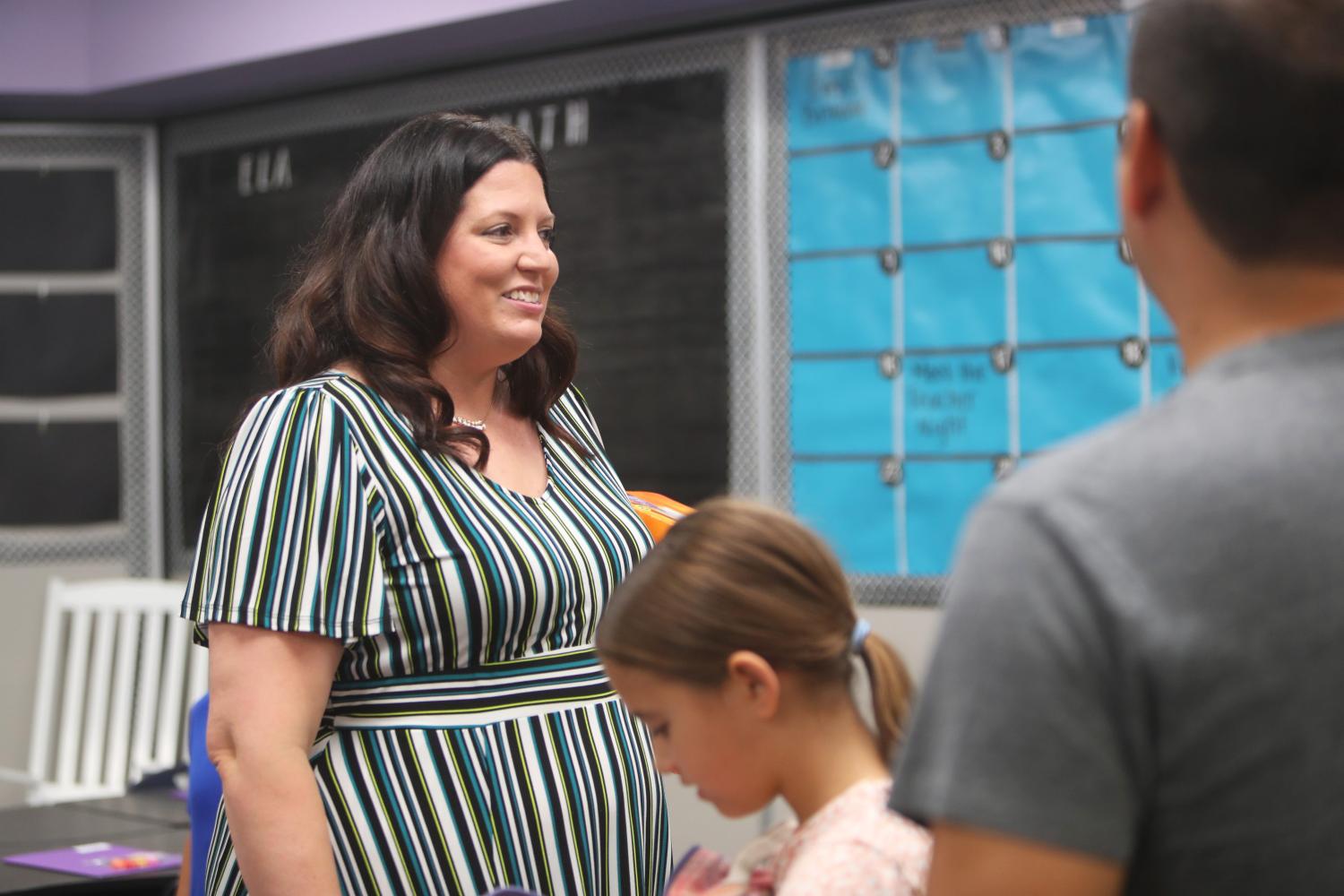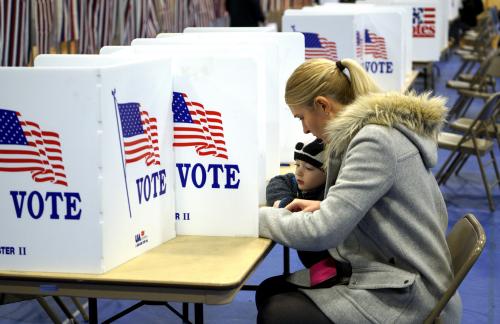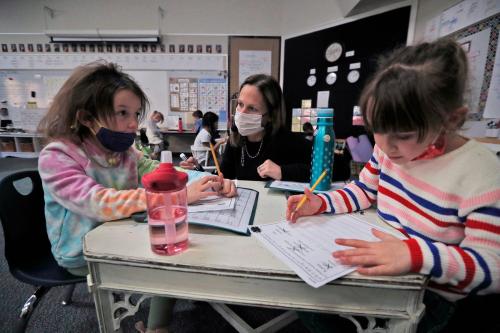Parental involvement has become a flashpoint in the public debate over what instructional content is appropriate for school settings. These heated discussions have manifested in numerous forms, including a Parents Bill of Rights Act passed by House Republicans, lawsuits initiated by parents against school districts, and even violent conflicts at school events. The media narrative has largely pitted parents against schools (even though these incidents may be the work of a small but vocal minority of parents).
Over the last two years, we’ve repeatedly used the RAND Corporation’s American Educator Panels (AEP) to survey educators about how they are navigating politically charged issues. These national surveys of K–12 educators—including district leaders, principals, and teachers—consistently show that parents have become a key source of tension in schools.
In this post, we use AEP survey findings to discuss what role educators see parents playing in these debates over politicized issues. We also discuss what schools can do to better engage parents as a way of alleviating political tensions.
Educators at all levels have experienced pressure from parents about politicized topics
In fall 2022, about half of a nationally representative sample of 300 district leaders agreed that political polarization over hot-button topics like critical race theory, LGBTQ+ issues, and COVID-19 safety practices was interfering with their ability to educate students. When we asked what specific challenges districts had experienced, leaders often identified issues involving parents or local community members (see Figure 1). For example, roughly three in ten said they were dealing with threats from the public against educators or school board members. Another three in ten reported increased requests from parents to opt their children out of instruction about controversial topics.
In addition to surveying district leaders, we surveyed principals. They, too, identified parents as a key source of pressure.
We asked a national sample of 1,540 principals in January 2022 whether they had experienced harassment about politicized issues such as COVID-19 mitigation measures or classroom conversations about race or bias. Overall, 61% of principals said they had experienced harassment over one of these topics, and 27% of principals said they experienced harassment specifically for their schools’ policies related to teaching about race, racism, or bias. Most of these principals were harassed over school policies that were supportive of teaching about race, racism, or bias, though some were harassed over school policies that opposed this practice. Regardless of whether the school policy fell more in line with progressive or conservative values, however, these principals overwhelmingly identified parents and family members as the source of the harassment. For example, 86% of the principals who reported harassment over a school policy supportive of teaching about racism or bias said this harassment came from parents. And 82% of the principals who reported harassment over a school policy against teaching about racism or bias said this harassment came from parents.
Our surveys also point to challenges that teachers are experiencing with parents and contentious political issues.
In spring 2022, we used an open-ended survey item to ask 1,452 teachers whether and how restrictions on discussions of race- or gender-related topics were impacting their instruction. In their responses, teachers named a variety of actors, including state leaders and school system administrators, as the source of the challenges they experienced. However, teachers most commonly pointed to parents and families. They described feeling increased scrutiny from parents about their lessons and instructional materials. They also expressed reluctance to address certain topics for fear of parental backlash.
More recent data further confirm teachers are modifying their instruction to avoid controversial topics, in large part because of real or perceived pressure from parents. In January 2023, we asked 1,439 teachers if their school system leaders had directed them to limit discussions about political or social issues in class. One-quarter of teachers said their school system leaders had done so—the same percentage as the school year before. However, a striking 65% of teachers said that they decided on their own to limit discussions about political or social issues. When we asked why, the top reason—picked by about half of teachers—was that they weren’t sure whether their school or district leaders would support them if parents expressed concerns (see Figure 2). And the second most-common reason was fear of verbal or physical altercations with upset parents.
Taken together, these survey results give the impression that conflicts between parents and educators—or educators’ hopes of avoiding these types of conflicts—are having tangible impacts on how schools are approaching instruction.
Because educators at all levels have experienced pressure from parents, educators’ solution to the problem of heightened political polarization in schools must involve parents
Our national surveys of educators reveal points of tension between families and schools. However, these same surveys underscore the influence of parents and the importance of building trusting relationships with families to head off potential conflict early. Educators don’t need to hide from controversial topics. They can (and should) bring families into respectful, productive conversations to build a foundation of trust and shared goals with families before conflict arises. But educators also need clarity on how to respond when they encounter conflicts with parents and families.
We suggest school system leaders, including district leaders and principals, develop a two-pronged approach: a proactive strategy to build trust and engage parents in conversations about their children’s learning and a reactive strategy to manage conflict when it does occur to reduce the burden on educators. Here are some ideas of what school system leaders might do:
- Create clear protocols for how teachers and principals should respond to families. It is inevitable that educators will encounter disagreements with families about instructional content. Teachers have told us that navigating these disagreements creates additional work. For example, they must spend time looking for different instructional materials or creating alternative assignments for students whose parents have opted them out. To avoid placing increased burdens on an already beleaguered workforce, school system leaders should streamline processes and develop protocols to respond to families’ concerns. This might include guidance on moving concerns to higher levels of authority within a school system, submitting instructional materials for approval, and responding to opt-out requests from parents. A list of approved instructional materials that teachers can draw on when they do want to address race or gender in the classroom could also help.
- Collect data on what families in their school communities think about politicized issues. Anywhere from about a quarter to almost half of principals don’t know what the parents in their schools think about various politicized issues. To collect this information, school systems might administer brief, factual, and objective surveys to families in their school communities. Such data might help leaders identify potential points of contention—or even misconceptions—held by parents. These data might also help leaders avoid making decisions that address the preferences of only a vocal minority of parents and identify opportunities for school and district leaders to emphasize common ground. For instance, a recent parent survey showed that two-thirds of parents, including a majority of both Republican and Democratic parents, believe it is important that schools teach their children social and emotional skills. Leaders could emphasize these shared values when communicating about school activities or books that students are reading.
- Foster greater transparency around instructional policies and practices and work to establish more alignment between parental beliefs and best practices. We know from decades of research that parental involvement in children’s schooling is critical for helping students succeed. But students are also best served when schools’ instructional practices and curriculum choices are informed by professional expertise and research evidence. School system leaders should be prepared to articulate the reasoning and evidence behind their policies and instructional practices as well as the value—whether academic, social, or otherwise—of instructional content or policies that parents might consider controversial. School system leaders should work to educate families on their instructional choices so that families can develop an understanding of the evidence and knowledge base undergirding schools’ policies.
-
Acknowledgements and disclosures
Ashley Woo and Melissa Kay Diliberti are assistant policy researchers at the nonprofit, nonpartisan RAND Corporation and Ph.D. candidates at the Pardee RAND Graduate School.








